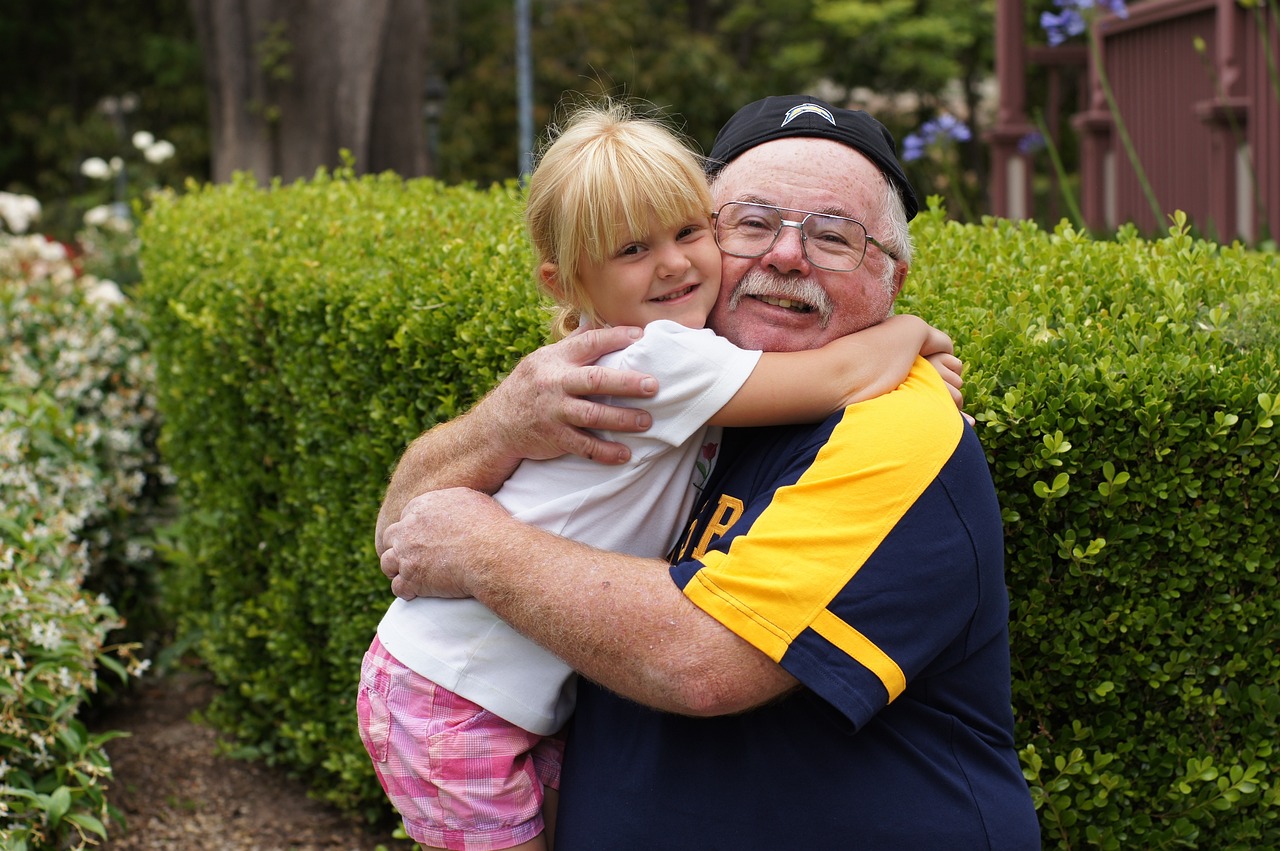Helping children understand dementia and Alzheimer’s disease can be a sensitive and challenging task, especially when it’s a grandparent or loved one who’s suffering with the condition. You need to approach the conversation with honesty, empathy, and age-appropriate language, helping your children understand and cope with the behavioral and memory changes they’re seeing in their grandparents. (Of course, depending on how old you and your ailing parent are, you may be explaining to your grandchildren/your parent’s great-grandchildren).
1. Start with the Basics:
Begin by explaining what dementia or Alzheimer’s disease are in simple terms that children can understand. You can say something like, “Grandma has dementia (or something called ‘Alzheimer’s’), which affects her brain and makes it hard for her to remember things. But it’s not like a cold – it’s not something you can catch from her.” It’s vital your children understand it’s just something that happened to Grandma; she didn’t choose to have it. And while emphasizing it’s not contagious, reassure your children it’s not going to happen to them (safe to assume there will be a cure by the time today’s children are elderly, right? Right…?)
2. Be Honest and Direct:
Be honest with your children about their grandparent’s diagnosis. Use clear and straightforward language, explaining they may notice their grandparent being forgetful, confused, acting differently than they used to, repeating the same story, or asking the same question time and again. Be sure your children know they can always ask you questions and express their feelings about what they experience with Nana or Poppy.
3. Tailor the Conversation to Their Age:
You know your children best, and will be able to adapt your approach based on their age and level of understanding. Younger children will need simpler explanations and reassurance, while an older child may be able to grasp more complex concepts and engage in deeper discussions about the disease. The use of age-appropriate language and examples should help them relate to the topic.
4. Emphasize Empathy and Compassion:
Encourage empathy and compassion by modeling those traits in the way you treat your ailing parent. Additionally, be sure your children know that dementia can be frustrating and scary for the person experiencing it, so their grandparent needs extra patience and support from their family. Encourage your children to offer love, understanding, and companionship to their grandparent during this challenging time.
5. Address Their Feelings:
Validate your children’s feelings and emotions about their grandparent’s diagnosis. They may feel sad, confused, or scared about the changes they see in their loved one. Let them know that it’s normal to have these feelings, and that you’re there to support them through it. Encourage them to express their emotions openly and offer comfort and reassurance.
6. Provide Reassurance and Stability:
Maintain a sense of stability and routine in your children’s lives to help them feel secure amidst the changes happening in the family. Reassure them that they’re loved and cared for, and that you’ll all work together as a family to support their grandparent and each other through this journey.
7. Encourage Positive Memories and Connection:
Remind your children of the happy memories they’ve shared with their grandparent. Ecourage them to continue making new memories together, even as the disease progresses. Encourage them to engage in activities that they enjoy doing with their grandparent, such as reading, listening to music, or going for walks. If you’ve got a young adult, and the grandparent seems to have a decent long term memory capabilities, have your child talk about past vacations, memorable birthdays and other family events or obvious iconic moments.
8. Offer Resources and Support:
Provide your children with age-appropriate resources and support to help them better understand dementia and Alzheimer’s disease. Books, websites, and support groups specifically designed for children can offer valuable information and a sense of community for kids dealing with similar situations. You might find a book like this one helpful.
Talking to kids about dementia and Alzheimer’s requires sensitivity, honesty, and empathy. By providing age-appropriate information, validating their feelings, and offering reassurance and support, parents can help children understand and cope with their grandparent’s diagnosis while maintaining a sense of love, connection, and stability within the family.



